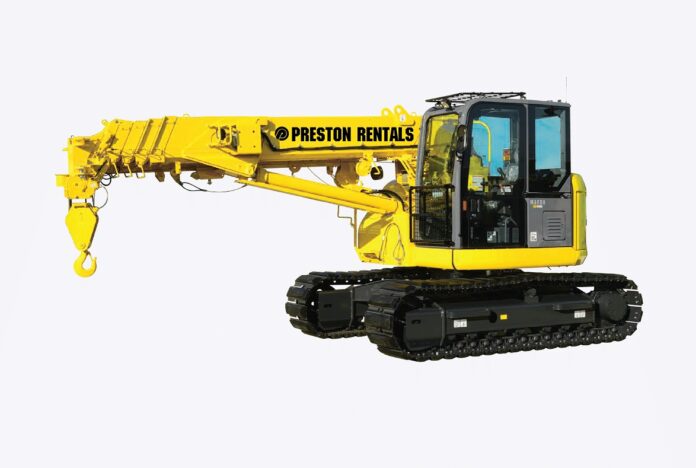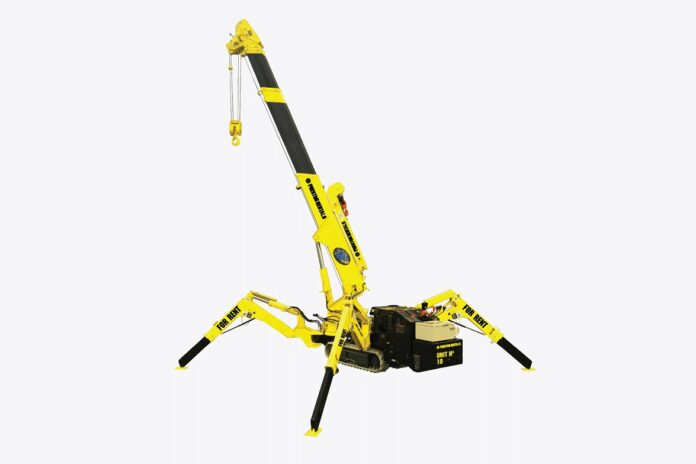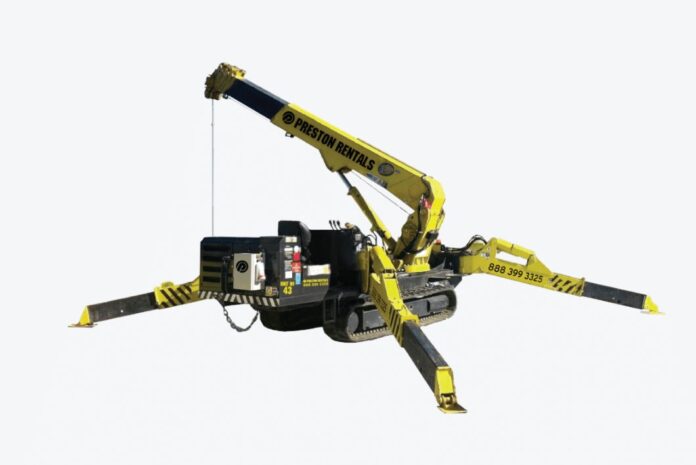
Regardless of scale, construction tasks typically require specialized machinery for efficient completion. Cranes, which help in heavy lifting and maneuvering, contribute significantly to the safety and ease of these jobs.
These powerful machines enable precise handling of heavy materials and equipment, reducing manual labor and minimizing the risk of workplace injuries.
Many construction companies prefer to lease cranes from crane rental services to match their specific project needs without the ongoing responsibility of owning the equipment. Opting for crane rental brings numerous advantages, but it is important to understand the agreement terms to ensure a smooth and effective partnership.
When selecting from various crane rental providers, what should you consider? Here are several helpful tips.
Crane Rental Contracts ─ Understanding Them Better Before Signing
When considering a crane rental contract, there are several key aspects to look out for to ensure you make a well-informed decision. Here are some important considerations:
1. Grasping the Work Scope

The initial phase in understanding a crane rental contract involves thoroughly comprehending the work scope outlined in the agreement.
This includes scrutinizing details like the duration of the rental period, the specific type of crane required for the job, and any additional services provided by the rental company, such as operator provision, maintenance, and transport logistics.
Ensure the contract aligns with your project’s timeline and objectives to avoid delays and additional costs. It’s crucial to verify that the crane’s specifications meet the technical demands of your project and that all terms regarding usage, insurance, and liability are clearly defined.
Clear communication with the rental company about your project’s specific needs can help prevent misunderstandings and ensure that the contract is tailored to facilitate smooth operation and successful project completion.
2. Pricing Details and Additional Costs
It is crucial to go through the pricing structure in any crane rental contract. Understanding all associated costs and ensuring they fit within your budget is important.
Evaluate the rental fees, delivery costs, and any potential overtime charges before finalizing your agreement. Be wary of hidden fees; verify that your selected rental company does not include undisclosed charges or conditions.
Furthermore, review the contract carefully to determine who will cover extra expenses like fuel, maintenance, and insurance throughout the rental period.
Dependable crane rental services, like Preston Rentals, typically manage these aspects, so clients aren’t faced with unexpected additional costs.
By choosing such reliable providers, construction companies can maximize the advantages of rental services, ensuring smooth project execution and financial planning without unforeseen disruptions.
3. Equipment Condition and Maintenance

The rental contract should specify the crane’s condition at the start of the lease and detail who is responsible for maintenance and repairs during the rental period.
Ensure a formal inspection or documentation confirms the crane’s operational state to meet safety standards. The contract should clarify that routine maintenance is typically managed by the crane rental services, but daily checks might be the renter’s responsibility.
It should also outline procedures for handling repairs, including contact points and response times for malfunctions to prevent project delays.
Additionally, the agreement should describe the expected condition of the crane upon its return to avoid disputes over damages.
This level of detail helps ensure both parties understand their obligations, maintaining equipment reliability and safety throughout the project, and facilitating a smooth handover process at the end of the rental period.
4. Insurance Coverage
Insurance is a crucial component of any crane rental contract. Before proceeding with a crane hire, it is important to verify the rental company’s insurance coverage.
Given the risk of injuries and property damage on construction sites, unforeseen incidents can arise during the rental period. Adequate insurance coverage can protect you from incurring extra costs for damages or repairs.
Ensure that the contract clearly outlines the insurance provisions and terms, including the types and limits of coverage provided, and ascertain whether additional insurance is required on your part. Understanding these details helps safeguard your project against financial liabilities and ensures compliance with legal and safety standards.
5. Repair Duties

The crane rental contract should clearly outline who is responsible for repairs during the rental period and the procedures for initiating them. It should also specify the contact details for reporting mechanical issues, the expected response times, and the steps required for reporting problems.
It’s important to confirm whether the rental company offers on-site repair services and the timeframe within which technicians can address issues.
Additionally, the contract should detail any replacement policies for severe malfunctions, including the conditions for providing replacements and the types of equipment available.
Lastly, clarify the financial responsibilities for repairs, especially if damage results from operational mishandling. This will ensure that both parties understand their duties and obligations and can avoid potential disputes in the future.
6. Dispute Resolution Mechanism
Disputes are generally unwanted, yet having a clearly defined dispute resolution mechanism can conserve both parties’ time and resources. It is important to review the steps to follow in case of disagreements.
A clear and structured dispute resolution process, which may include mediation or arbitration before resorting to litigation, can help avoid long and intricate legal disputes.
Ensure that the contract specifies the methods for resolving conflicts, the timeline for each step, and the responsibilities of each party during the process.
This proactive approach can facilitate swift and fair resolution of issues, minimizing project delays and fostering a cooperative relationship between the rental company and the renter.

Final Words
Understanding crane rental contracts well is key to a successful construction project. Make sure to check important details like the job details, prices, the condition of the equipment, who takes care of maintenance and repairs, insurance, and how to handle disagreements.
These steps help you avoid unexpected problems and costs. Knowing what’s in your contract helps you work better with the rental company and keeps your project on track.
Always take the time to read and understand every part of the contract to ensure it’s fair for both you and the rental company. By doing so, you can establish a strong foundation for a smooth, efficient, and successful collaboration.











